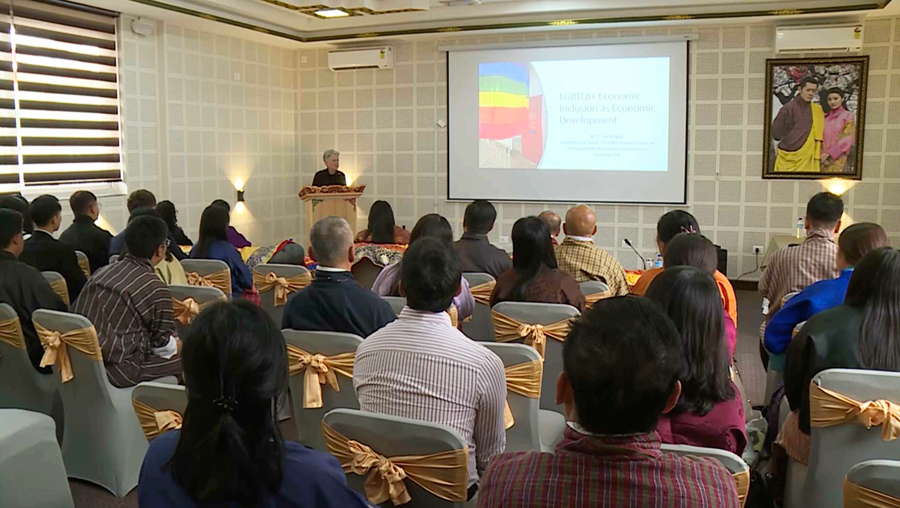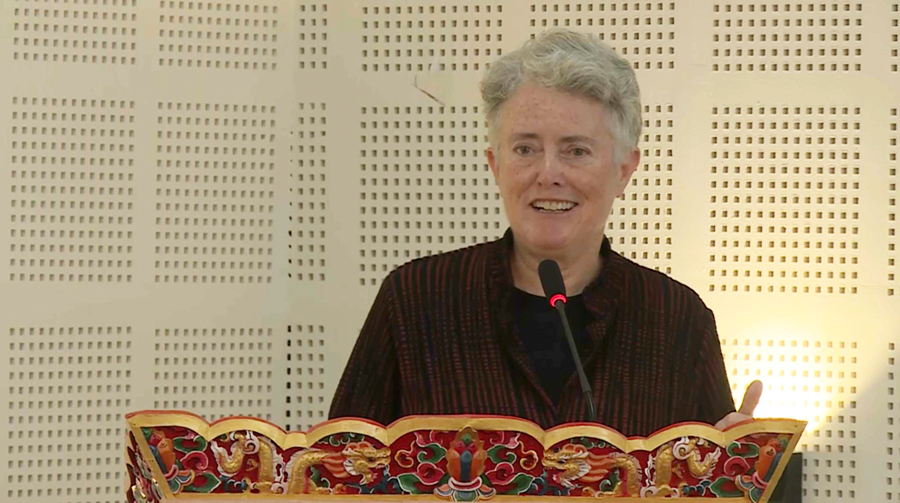
Discrimination against vulnerable groups such as persons with disabilities, senior citizens, and queer communities in social, educational, healthcare, and workplace settings can reduce their productivity. Experts say this can impact both the affected individual and society’s economic growth. In Bhutan, members of the queer community emphasise the need for more awareness and legal recognition to address these challenges.
 At a recent event on ‘The Economic Cost of Exclusion’, Lee Badgett, an economics professor at the University of Massachusetts Amherst, said that exclusion in any setting often includes discrimination such as name-calling, bullying and even physical abuse.
At a recent event on ‘The Economic Cost of Exclusion’, Lee Badgett, an economics professor at the University of Massachusetts Amherst, said that exclusion in any setting often includes discrimination such as name-calling, bullying and even physical abuse.
She added that these forms of exclusion can harm both mental and physical health.
She is also a consultant on LGBTI issues for the World Bank, Asian Development Bank, and UNDP among others.
“If you put people in a position where they can’t fully use their potential because they are having to worry about how they will be treated as an LGBTI person, then you are not going to get the full value of what they have to contribute. LGBTI people contribute a lot to the economy. Let’s call it that. What we are talking about is increasing that over time in ways that really will be good for everybody.”
She added that while Bhutan is becoming more socially inclusive, there are still gaps to address.
The LGBTI community, Queer Voice of Bhutan, said that more efforts are needed to eliminate any discrimination within the community.
“I think some of the key issues faced by the queer community at large in Bhutan definitely has to do with the lack of proactive legal recognition for the different identities. This translates in the form of the discrimination and harassment that they face, be it in school, the lack of sensitisation and awareness in health facilities that is being given to them as well as I think employment where the workplaces don’t really have proper or inclusive legal policies that accommodate, protect the different queer identities in such places as well,” said Regita Gurung, vice president of Queer Voice of Bhutan.
“Despite the visibility of the queer community in the country, I think we have to be aware that, especially in terms of the queer community, there is still lots of stigma since there is no access to authentic queer representation in the overall larger media,” said Pema Dorji, the founder of Queer Voice of Bhutan.
Members of these communities are hopeful that addressing the root causes of exclusion will make a difference.
“We have currently been working on the national gender equality policy, which I think aims to address all the inequalities and to work on solutions in all five sectors of health, social, economic, political and education. I feel that this particular policy and the recognition that it has for the queer community would result in the policy being implemented in different parts of society. Hopefully leading to a more inclusive and accommodating place for everyone in all sectors,” added Regita Gurung.
The National Commission for Women and Children is leading the revision of the National Gender Equality Policy 2020 along with other stakeholders.
Meanwhile, the Asian Development Bank is working on a study of the economic benefits that would be unlocked through greater inclusion of the LGBTI community in the country.
Deki Lhazom/Singye Dema
Edited by Sonam Pem









